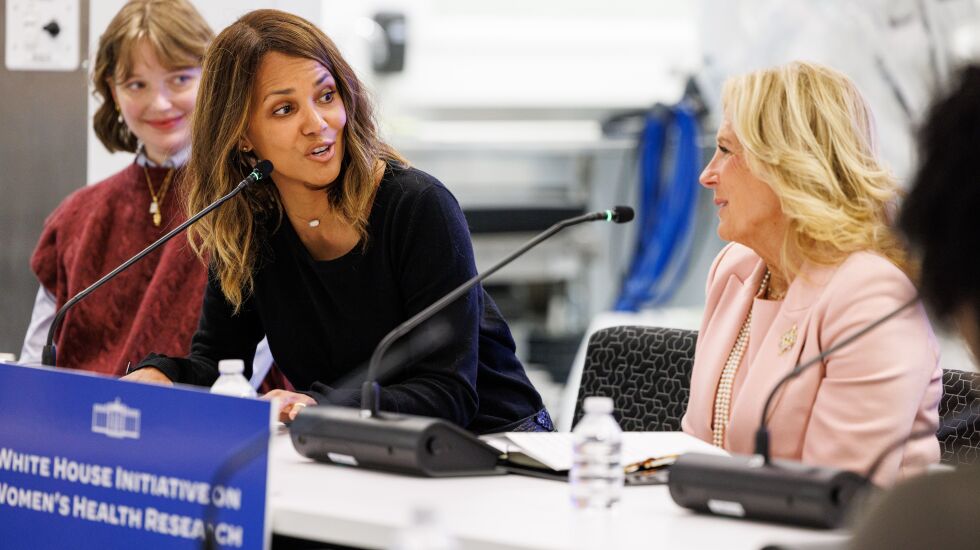
First lady Jill Biden stopped in Chicago Thursday to emphasize the need for stronger, more robust research on women’s health and menopause.
She led a roundtable talk with a panel that included actress Halle Berry, an advocate for women’s health, at the Illinois Neuropsychiatric Institute on the University of Illinois-Chicago campus.
“Halle and I are here today because the University of Illinois-Chicago is doing groundbreaking research on menopause,” Biden said. “Every woman will be affected by menopause, yet there’s a stunning lack of information about how to manage and treat its symptoms. UIC is working to change that.”
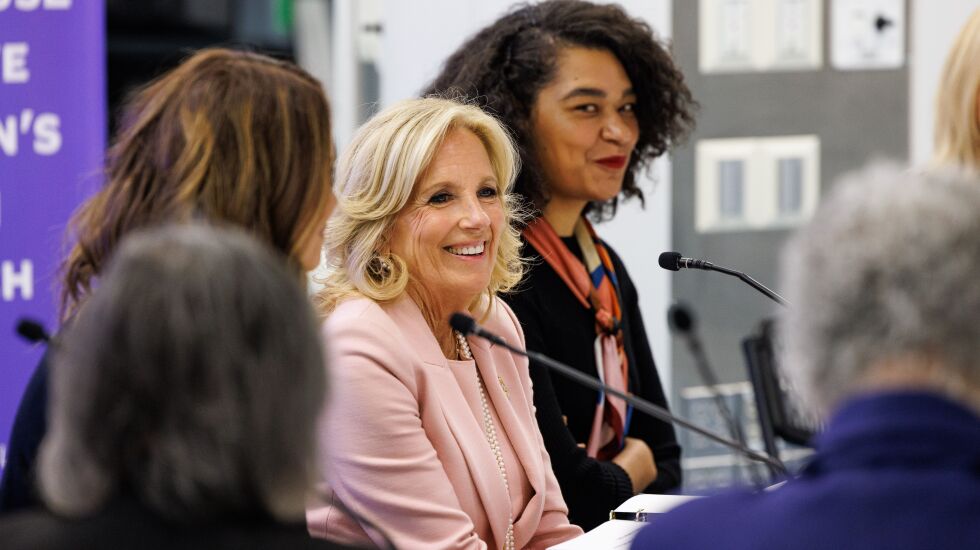
Berry said she learned how difficult menopause can be only when she started to go through it herself.
“I get asked this question all the time, what brought me to this critical and very important work?” said Berry, 57. “And I think I am no different than any other woman right now who reaches their menopausal years or perimenopausal years and they felt like, what the heck is happening to me?”
And though she had an attentive and helpful doctor, Berry said the options for managing menopause are too limited and don’t do enough to address symptoms.
Berry visited Washington, D.C. last month to discuss menopause with members of Congress. She also runs a health and wellness site, re-spin, focused on women’s health.
Dr. Pauline Maki, a UIC professor of psychiatry, psychology and obstetrics & gynecology and a leading researcher on menopause, joined Thursday’s roundtable.
Her focus is on the impacts sex steroid hormones, such as estrogen, have on cognition, mood, brain function and stress in women during menopause, pregnancy and throughout the menstrual cycle.
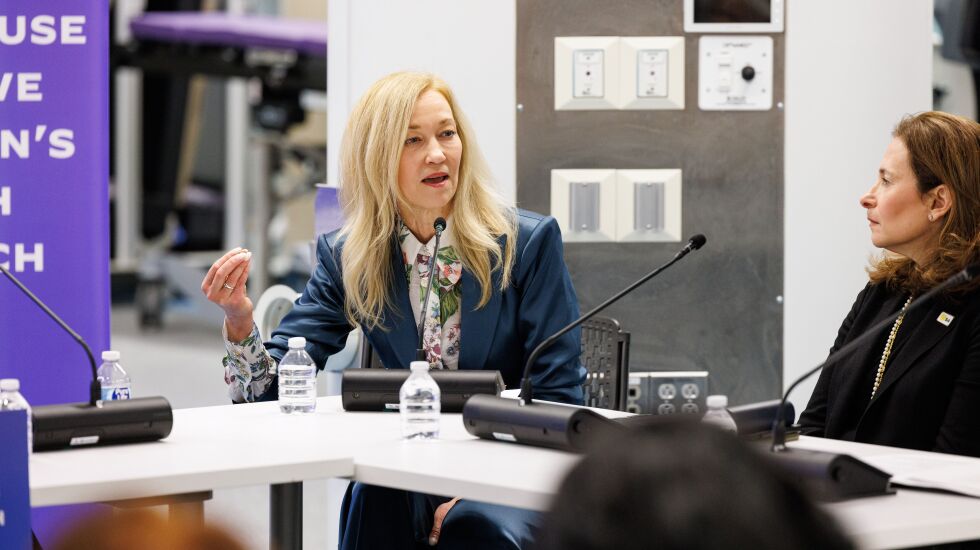
“Women are demanding that we do better,” Maki said. “Half of the population goes through this, shouldn’t we have a firm scientific understanding of what happens to women’s bodies? What happens to their brains? Because without that, we can’t give women the personalized care that they need.”
Biden also discussed a new White House effort to bolster and fund more women’s health research.
Last November, President Joe Biden signed an executive order launching the first-ever White House Initiative on Women’s Health Research. The first lady is leading the initiative along with the White House Gender Policy Council.
“There’s such excitement in the field about what you’re doing and we feel such promise,” Maki said to Biden. “This initiative will transform women’s health research and that means we will transform people’s lives.”
Maki said studying how menopause impacts a woman’s brain is key not only to understanding menopause better, but also to properly treat symptoms.
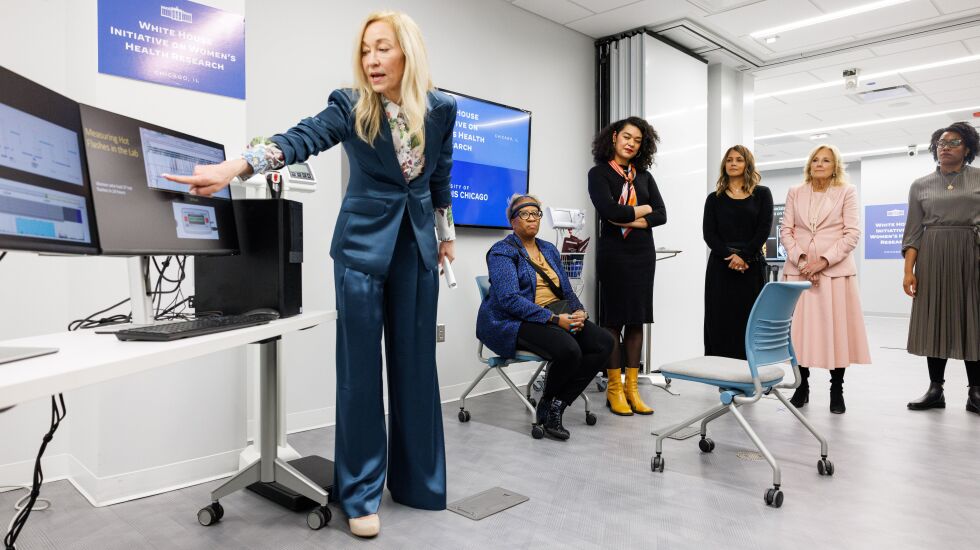
Alexandra Paget-Blanc, a doctoral neuroscience student who works with Maki, demonstrated the tools they use to measure menopause symptoms, such as hot flashes.
Jill Biden’s stop in Chicago comes as reproductive rights are expected to be a dominant issue during the 2024 election, especially after the Supreme Court overturned Roe v. Wade in 2022.
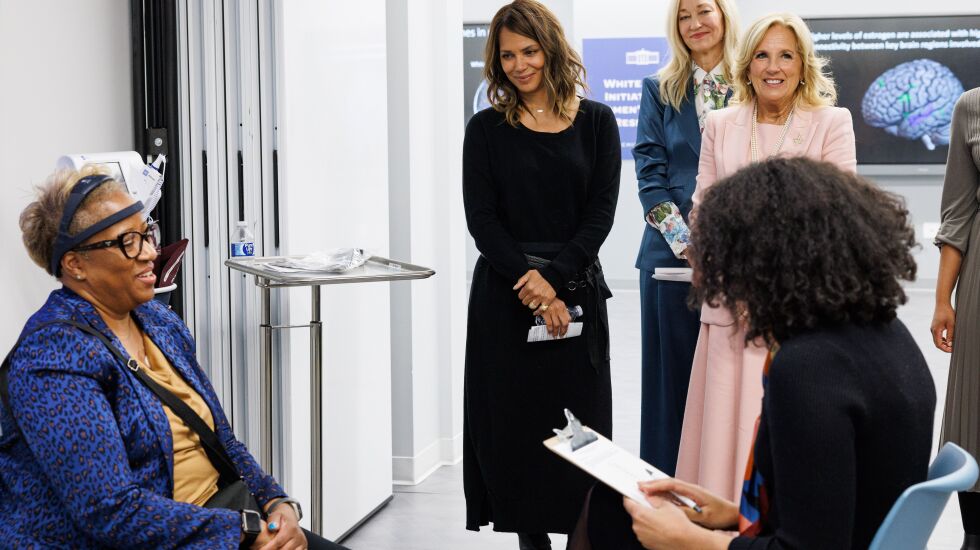
Another issue, however, was on the minds of more than 100 people — UIC students and other pro-Palestinian supporters — gathered outside to protest President Biden’s response to the Israel-Hamas war.
The protest was organized by the Chicago Coalition for Justice in Palestine, which has held multiple protests since the Hamas attack on Israel Oct. 7 and the retaliatory attacks by Israel on Gaza. That initial Hamas attack killed about 1,200; since then, more than 23,000 people have died in Gaza, according to the Health Ministry in the territory, which is run by Hamas.
Sofia Sinnokrot, 24-year-old alumni of UIC who grew up on the North Side, said she joined the protest to show Jill Biden “she’s not welcome here in Chicago.”
“We need to let Jill Biden know, Joe Biden, their whole family, the whole White House, they’re not welcome in Chicago, the people of Chicago stand for Palestine,” said Sinnokrot, who is Palestinian.
“You cannot say you support women’s health if that doesn’t include Palestinian women,” said Feda Taha, 24, who grew up in an area of Chicago Ridge often referred to as “Little Palestine” because it has so many residents with ties to that part of the Middle East. Her father’s family lives in Gaza, she added.
“The healthcare system [in Gaza] has literally collapsed,” said Taha, a UIC alum who studied public health. “It’s so audacious to come here and talk about women’s health.”
Contributing: Associated Press







